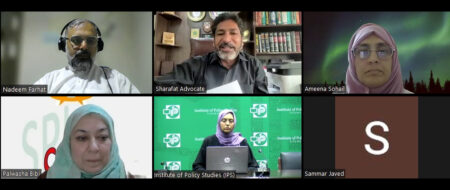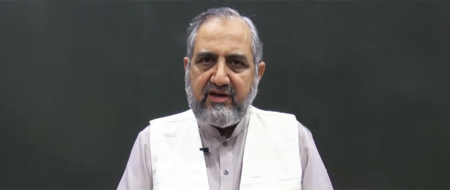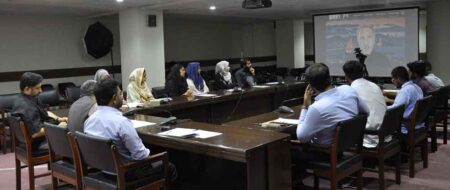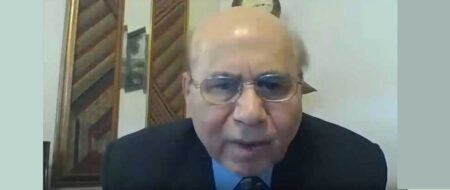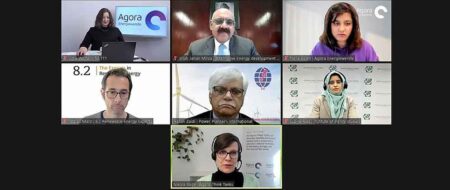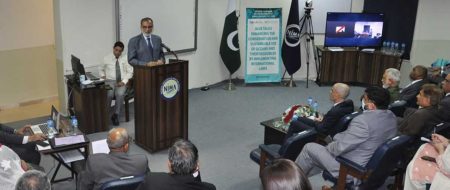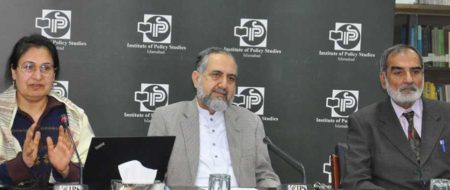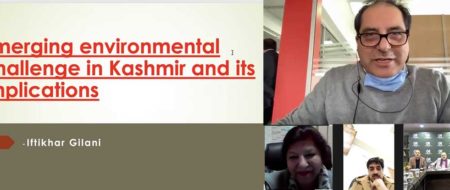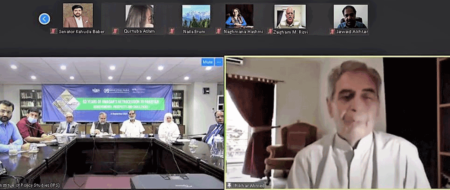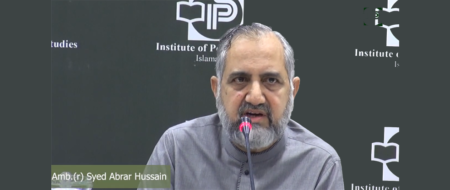‘Covid-19 – A look towards its brighter side’ (7th Session)
Coronavirus pandemic has provided new opportunities in various sectors, says analyst
The world is gripped by a massive natural crisis whose
gravity it is finding onerous to tackle. However, the coronavirus pandemic has
also thrown up opportunities in various sectors, which if worked on prudently,
could prove to be beneficial both in short and long term.
These views were shared at a webinar titled ‘Covid-19: A
look at the brighter side of the global threat’, which was organized by IPS on
April 27, 2020 as part of its webinar series ‘Covid-19: Global Challenges,
National Response’. The session was addressed as main speaker by Mirza Hamid
Hasan, former federal secretary, Water and Power and chaired by Executive
President IPS Khalid Rahman, whereas Senior IPS research associate Ambassador
(r) Tajammul Altaf also participated in the proceedings.
Hasan was of the view that Covid-19 has generated some
employment opportunities in the industry for manufacturing Coronavirus-related
products such as personal protective equipment, face masks and hand sanitizers.
This also includes medical devices such as ventilators, which though are still
in the prototype stages. The government has also given incentives to the
construction industry that will help provide employment both in upstream and
downstream areas.
The speaker also highlighted the benefits resulting from
the substantial reduction in demand for energy in almost all major consumer
sectors due to lockdown along with the falling energy prices in the world
market. This can be gauged from the fact that petroleum imports fell by more
than 37 per cent from Rs170 billion in February to Rs106 billion in March.
“The development has resulted in reducing the country’s
import bill and the corresponding pressure on foreign exchange reserves. The
saved funds could be diverted to measures for controlling the pandemic” he
added.
Hasan opined that Covid-19 has shown that shipping and
logistics problems pose a considerable risk to the supply lines of energy. This
should act as a motivating factor to develop new sources of oil and gas and
renewable energy. There could be long-term benefits if the government starts to
formulate policies for energy efficient industries.
Another benefit, he
pointed, was that the prolonged lockdown and closure of industry and transport
have brought down emissions of greenhouse gases worldwide and resulted in
visible improvements in environment and possibly global temperatures. This
improvement will directly reduce expenditure on mitigation and adaptation
measures along with funding required to reduce the intensity of environmental
degradation.
Hasan pointed that due to the lockdown, the private
institutions have moved their teaching services online while the government too
has started a television channel for teaching activities of public
institutions. He said this change will be long-term and perhaps permanent for a
number of reasons including cost reduction, time saving, flexibility, and
convenience for both teachers and students. It will also make quality education
affordable for many students as the large institutions will be able to reduce
huge overheads.
The speaker further viewed that online classes will also
allow greater parental control and supervision, resulting in better grooming
and character-building of students.
Regarding matters pertaining to health, Hasan said most
diseases such as hypertension, heart disease, diabetes and various
psychological problems are largely a result of stress caused by the rat race,
unhealthy lifestyles and overwork. Covid-19 will likely bring about a major
change in work systems by promoting working from home and flexible timings.
This will also provide more time for family and friends and leisure activities.
He said this will improve the health of both employees and employers and also
help to further promote telemedicine.
Besides, he continued, getting together with families
during the long lockdown periods will lead to a re-bonding of families and will
restore social etiquette and curtsies.
Hamid was of the opinion that a large part of humanity
has drifted away from spirituality and religion, which has created a myriad of
problems in society. “Large-scale spiritual revival has been witnessed on
social media as well as places of worship due to Covid-19,” he deduced.
Rahman said some positive changes in society have taken
place due to the pandemic as well as by the lockdown measures taken by the
government. But the patterns that have changed in a positive way – such as in
lifestyle and consumption – are of a transitory nature and efforts should be
made to make them long-lasting. “This would require proper planning. The
government should not only engage in crisis management during the pandemic but
should also identify areas that are in genuine need of change,” he added.
Speaking about education, Rahman said that both education
and training are closely related, whereas the growing trend of online education
will enable children to train at home while acquiring formal education. He said
International educational institutions and universities have already started
inviting and associating with themselves the students from other countries,
which does run the risk of their increased influence over our children. At the
same time however, this situation also presents us with an opportunity to
extend our viewpoint over matters like education, difference of civilizations,
and faith, before the world the same way in an articulated and cogent
manner.



